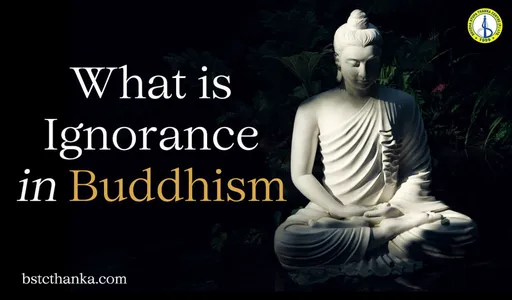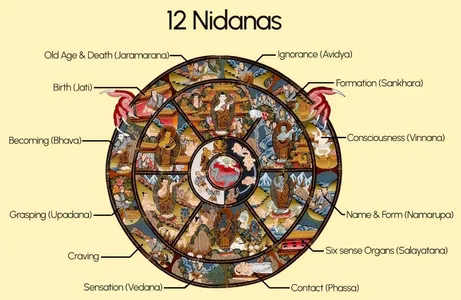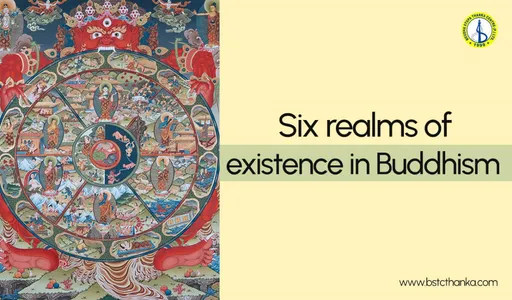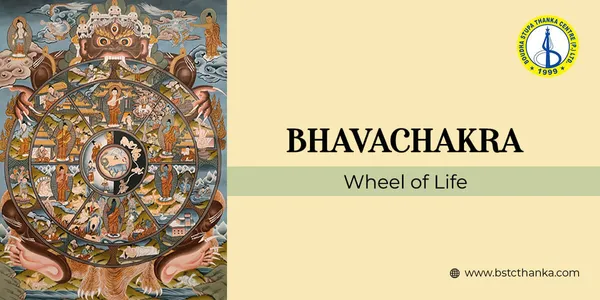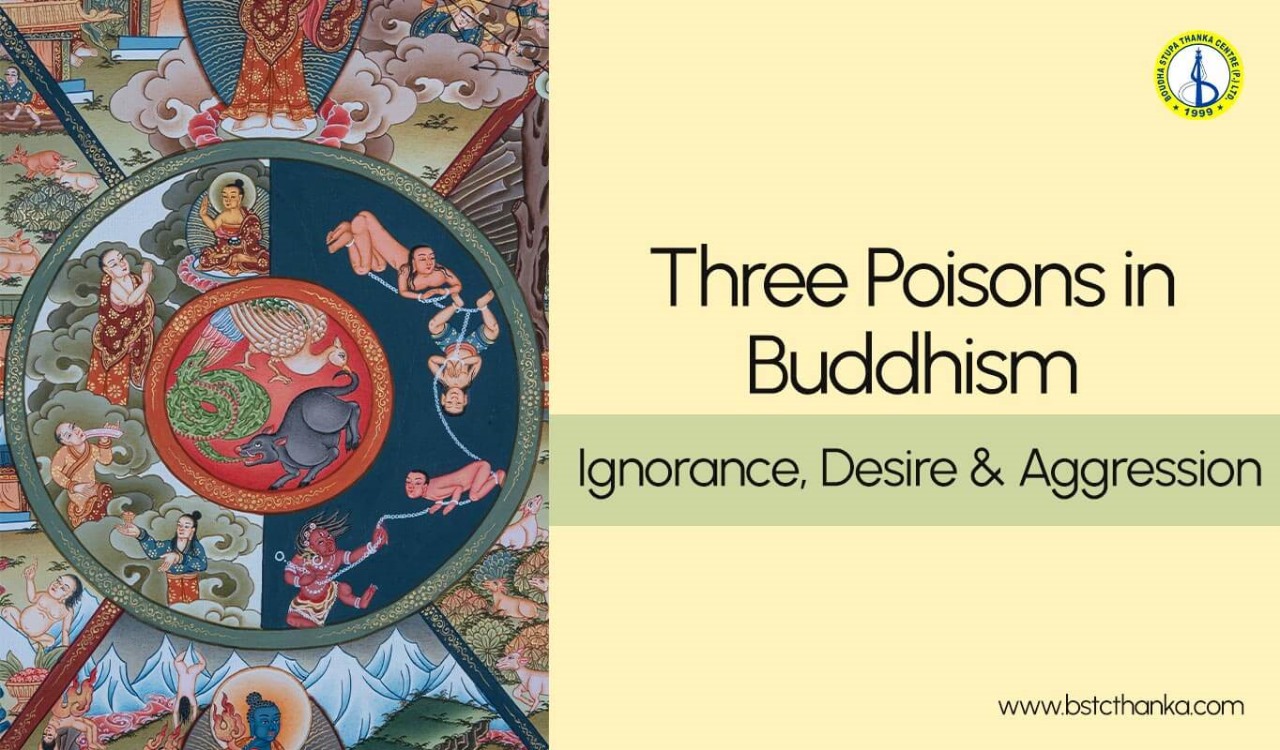
3 Poisons in Buddhism: (Ignorance, Desire & Aggression)
Imagine a life free from suffering and filled with peace. In Buddhism, this ideal state is achievable by understanding and overcoming the Three Poisons: Ignorance, Desire, and Aggression. These three poisons in Buddhism or three fires are seen as the root causes of all our pain and struggles. Ignorance blinds us to the truth, desire binds us to material cravings, and aggression causes anger and conflicts. By recognizing and addressing these three poisons, we can begin a journey toward spiritual liberation and inner peace.
In this blog, we'll look into each of these Three Poisons, exploring how they affect our lives and what we can do to overcome them. By learning about ignorance, desire, and aggression, you’ll gain valuable insights into Buddhist philosophy and practical ways to improve your well-being. By the end of this journey, you'll have a clearer understanding of how ignorance, desire, and aggression shape your experiences.
What are the Three Poisons in Buddhism?
The 3 poisons are Ignorance (Delusion or "Moha", in Sanskrit), Desire (Greed, lust or "raga" in Sanskrit), and Aggression (hatred or "dvesha", in Sanskrit). In Buddhism, these three poisons cause suffering and keep us stuck in the cycle of rebirth. The 'ignorance' of the 3 poisions of Buddhism means not understanding the true nature of things, 'desire' is the greed for more than we need and 'aggression' is the feeling of hostility towards others. In the Wheel of Life Thangka, a special Buddhist painting, these poisons are shown as three animals: a pig, a rooster, and a snake. You can find these animals at the center of the Wheel of Life, where they're biting each other's tails in a circle. They drive the cycle of rebirth in the six realms surrounding them.
Also read: Four Noble Truths of Buddhism
1. Ignorance
Ignorance is one of the three poisons that cause suffering. It is represented by a pig in the Wheel of Life thangka. Ignorance means not understanding the true nature of reality. It is like being in the dark, unable to see things clearly. This lack of understanding leads to confusion and wrong actions, keeping us trapped in a cycle of suffering and rebirth.
The pig symbolizes ignorance because pigs are often seen as animals that live in filth and darkness. Just as a pig roots around in the mud, ignorance keeps us stuck in our own mental darkness. We fail to see the truth about ourselves and the world, leading to more suffering. Overcoming ignorance is essential for finding peace and breaking free from the cycle of rebirth.
2. Desire
Desire is considered a poison in Buddhism because it causes endless cravings and dissatisfaction. When we are driven by desire, we constantly want more, never feeling truly content. The insatiable longing creates a cycle of suffering as we chase after things that cannot bring lasting happiness. Desire keeps us trapped in a state of unfulfilled longing and frustration, preventing us from finding peace and contentment.
In the Buddhist Wheel of Life, desire is symbolized by a rooster. The rooster symbolizes desire because roosters are often seen as proud and always searching for something. Just as a rooster roams around looking for food, desire makes us constantly seek out new pleasures. The endless search for satisfaction prevents us from finding true peace and happiness. Overcoming desire is essential for breaking free from the cycle of suffering and achieving inner peace.
3. Aggression
Aggression means having feelings of anger, hatred, or hostility towards others. According to Buddhism, these negative emotions lead to harmful actions and create more suffering for ourselves and others. Aggression keeps us trapped in a cycle of conflict and pain, preventing us from finding peace and happiness.
In the Wheel of Life, the poison "aggression" is symbolized by a snake. Snakes are often seen as dangerous and quick to strike. Just as a snake reacts with hostility, aggression makes us react negatively to situations and people. The aggressive behavior causes more problems and suffering in our lives. That’s why controlling our aggression is essential for breaking free from the cycle of suffering and achieving a peaceful state of mind.
Why Understanding the 3 Poisons is Important?
The three poisons in Buddhism - ignorance, desire, and aggression - are important to understand because they are the root causes of human suffering. These three mental states of confusion, craving, and hostility are what drive us to make poor choices and act in ways that harm ourselves and others.
By letting go of these negative tendencies and instead cultivating wisdom, compassion, and patience, we can break free from this cycle and find genuine happiness. Understanding the three poisons of Buddhism doesn't mean we will never experience difficult emotions, but we can learn to relate to them in a healthier way without being controlled by them.
Also Read: What Are the 12 Links of Dependent Origination?
How to Overcome the Three Poisons?
Overcoming these destructive mental states is crucial for spiritual growth and inner peace. Here are some effective methods to counteract the influence of three poisons:
Mindfulness Meditation: Meditating on thangkas can help overcome the three poisons in Buddhism. This practice involves observing thoughts and feelings without judgment. Regular meditation helps recognize the arising of the three poisons, allowing for conscious choices rather than automatic reactions.
Loving-kindness Practice: By cultivating goodwill and compassion towards oneself and others, this meditation counteracts hatred and greed. It softens the heart and promotes positive emotions.
Ethical Living: Following moral guidelines, like the Five Precepts, reduces opportunities for the three poisons to arise. Ethical behavior brings peace of mind and supports mindfulness.
Studying Wisdom Teachings: Learning about Buddhist concepts like impermanence and non-self provides insights that counter delusion. This understanding helps make wiser life choices.
Cultivating Contentment: Practicing gratitude and finding satisfaction in the present moment helps overcome greed and attachment. It brings inner peace and reduces unnecessary desires.
Conclusion
In Buddhism, the Three Poisons—Ignorance, Desire, and Aggression—are the root causes of suffering and prevent us from achieving peace. Ignorance, symbolized by a pig, keeps us in mental darkness and confusion. Desire, represented by a rooster, leads to endless cravings and dissatisfaction. Aggression, shown as a snake, fuels anger and conflict. Understanding these poisons helps us see how they shape our experiences and actions. By addressing and overcoming them, we can break free from the cycle of suffering and move towards a more peaceful and content life.
FAQs
What do the three poisons mean in Buddhism?
In Buddhism, the three poisons are harmful mental states that cause suffering. Ignorance means not seeing things clearly, desire is always wanting more, and aggression is feeling angry or hostile. These poisons keep people unhappy and stuck in a cycle of rebirth.
What is the meaning of the pig, the snake and the rooster?
The pig, snake, and rooster in the Wheel of Life represent the three main poisons that cause suffering - ignorance, aggression, and desire. The pig stands for ignorance, the snake for aggression, and the rooster for constant craving and dissatisfaction. These three negative mental states keep us trapped in a cycle of pain and rebirth.
Can practicing mindfulness help with the Three Poisons?
Yes, mindfulness helps by making us more aware of our thoughts and feelings. This awareness allows us to recognize and address the Three Poisons more effectively.




